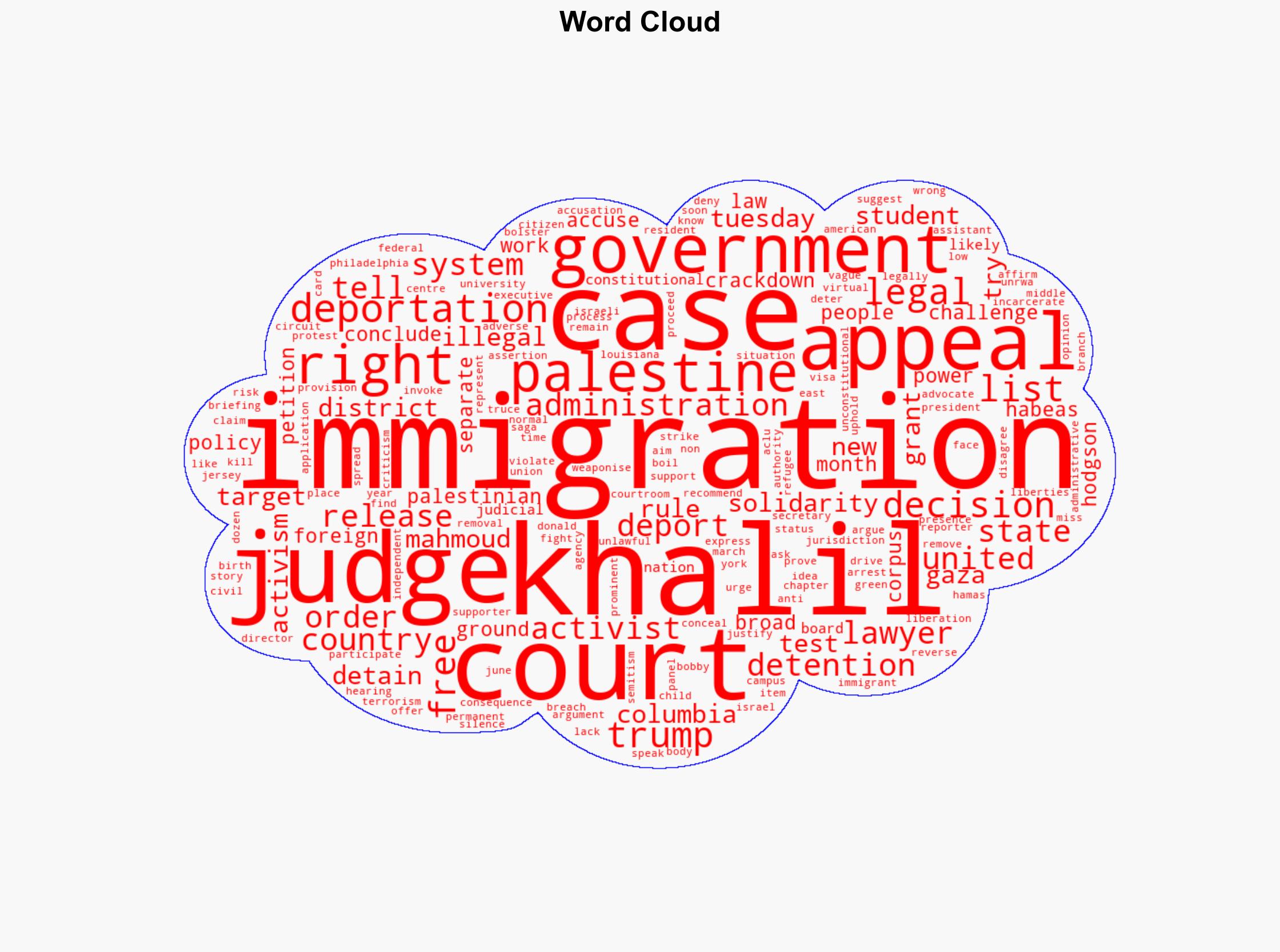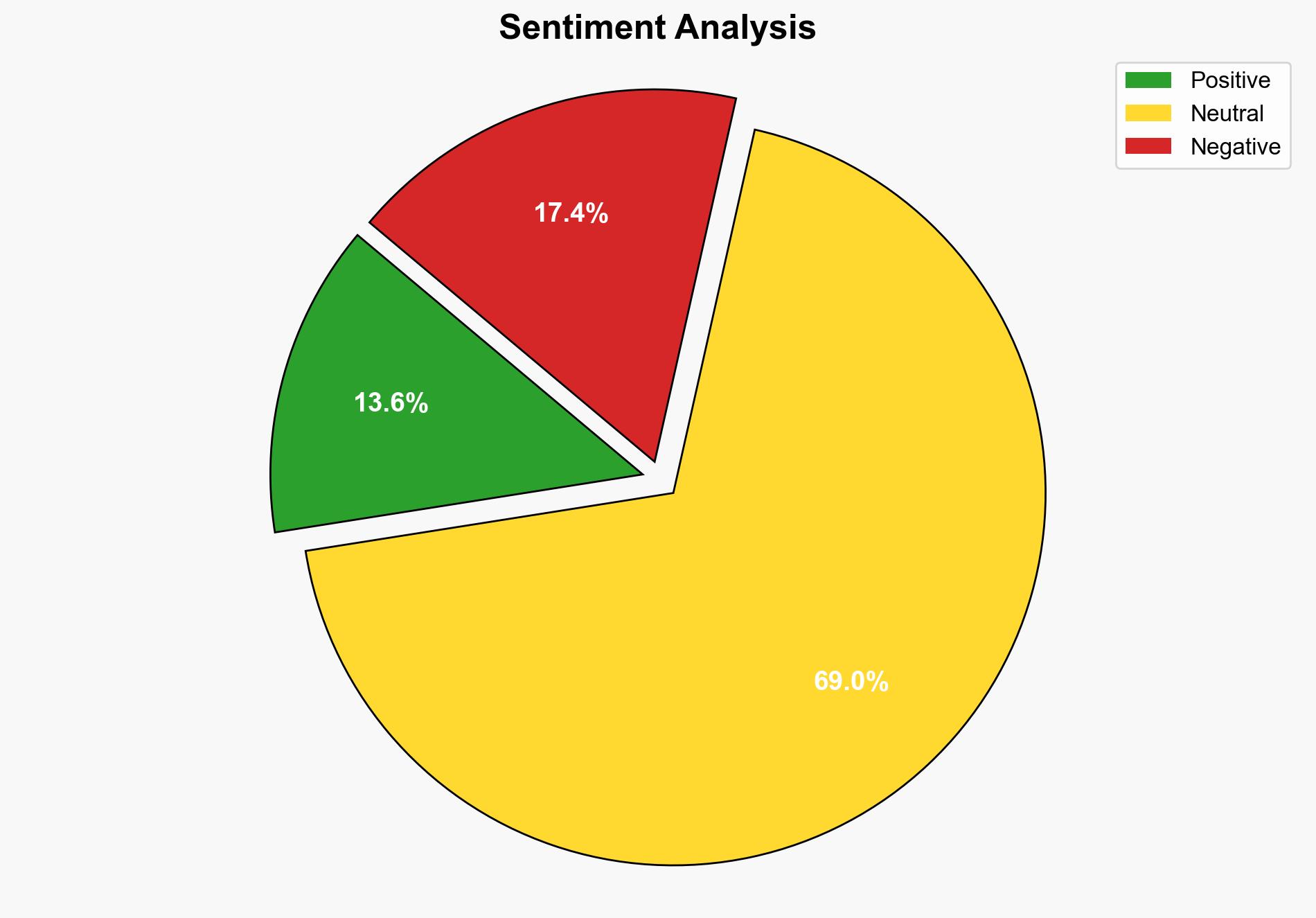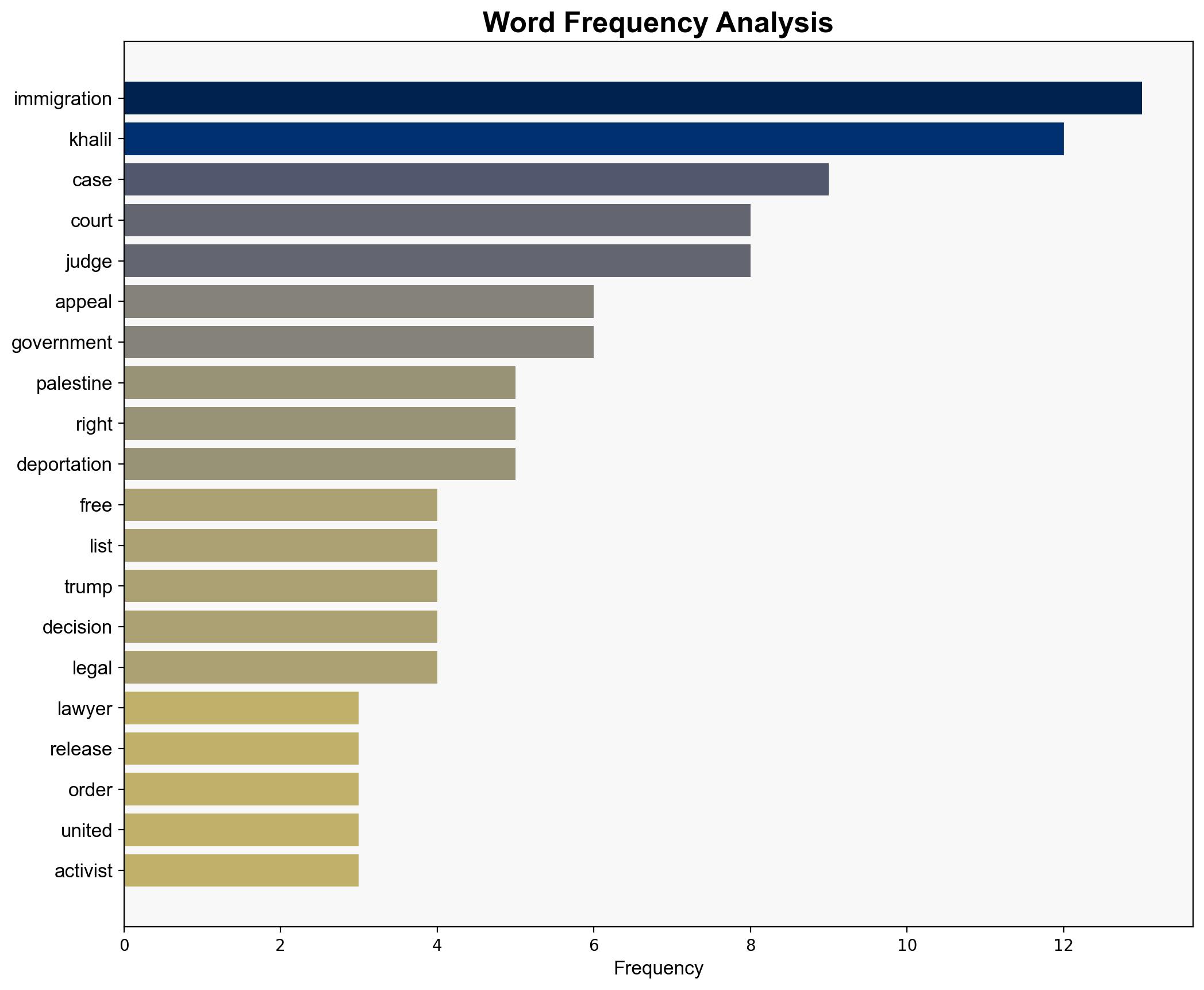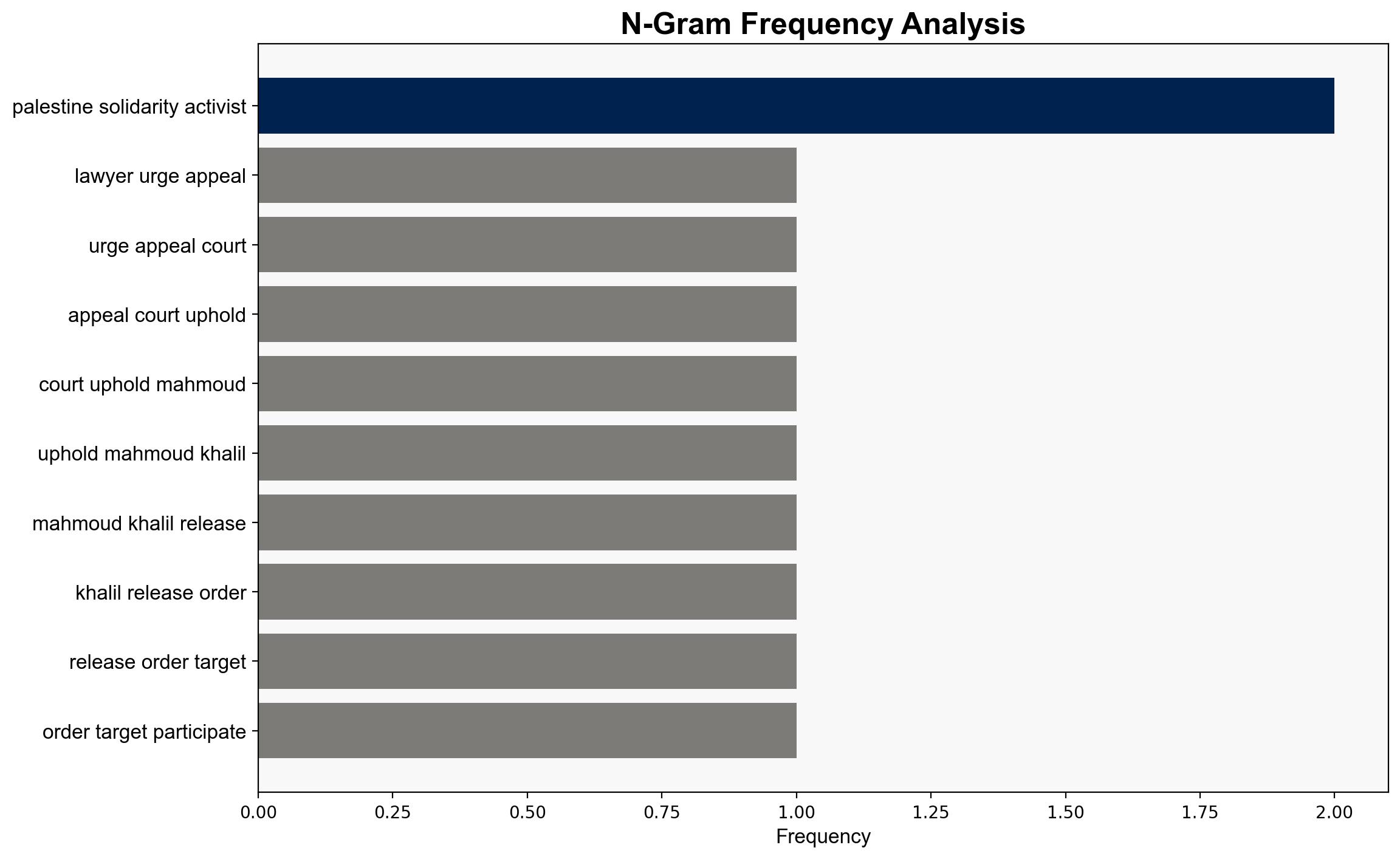Lawyers urge US appeals court to uphold Mahmoud Khalils release order – Al Jazeera English
Published on: 2025-10-21
Intelligence Report: Lawyers urge US appeals court to uphold Mahmoud Khalils release order – Al Jazeera English
1. BLUF (Bottom Line Up Front)
The most supported hypothesis is that Mahmoud Khalil’s detention and potential deportation are primarily driven by political considerations related to his activism, rather than legal infractions. Confidence in this assessment is moderate, given the complexity of the legal arguments and the political context. It is recommended that stakeholders monitor the legal proceedings closely and prepare for potential diplomatic or public relations challenges.
2. Competing Hypotheses
Hypothesis 1: Mahmoud Khalil’s detention and potential deportation are primarily motivated by his political activism and criticism of U.S. foreign policy, particularly regarding Palestine and Israel. This is supported by the timing of his detention, the invocation of broad immigration laws, and the context of increased deportations under the previous administration.
Hypothesis 2: Khalil’s detention is a result of legitimate legal infractions, specifically related to his immigration status and alleged concealment of work with a United Nations agency. This hypothesis is supported by the government’s legal arguments and the administrative decisions affirming his removal.
3. Key Assumptions and Red Flags
– Assumption for Hypothesis 1: The U.S. government is using immigration laws as a tool to suppress political dissent.
– Assumption for Hypothesis 2: The legal system is functioning independently and impartially, focusing solely on legal violations.
– Red Flags: The potential for bias in the legal process due to political pressure, and the lack of transparency in the decision-making process.
– Missing Data: Detailed evidence of Khalil’s alleged concealment of work with the UN agency.
4. Implications and Strategic Risks
The case could set a precedent for how political activism is treated under U.S. immigration law, potentially affecting other activists. It may also impact U.S. relations with Middle Eastern countries and influence domestic public opinion on immigration and free speech. There is a risk of escalating tensions between advocacy groups and the government, which could lead to protests or legal challenges.
5. Recommendations and Outlook
- Monitor legal proceedings and public reactions to anticipate potential diplomatic or public relations challenges.
- Engage with legal experts to better understand the implications of the case and prepare for possible outcomes.
- Scenario-based projections:
- Best Case: Khalil is released, and the case prompts a review of immigration laws to ensure they are not used to suppress political dissent.
- Worst Case: Khalil is deported, leading to increased tensions and protests, negatively impacting U.S. foreign relations.
- Most Likely: The case continues through the legal system, with ongoing public debate and media attention.
6. Key Individuals and Entities
– Mahmoud Khalil
– Bobby Hodgson
– Judge William Young
7. Thematic Tags
national security threats, cybersecurity, counter-terrorism, regional focus




